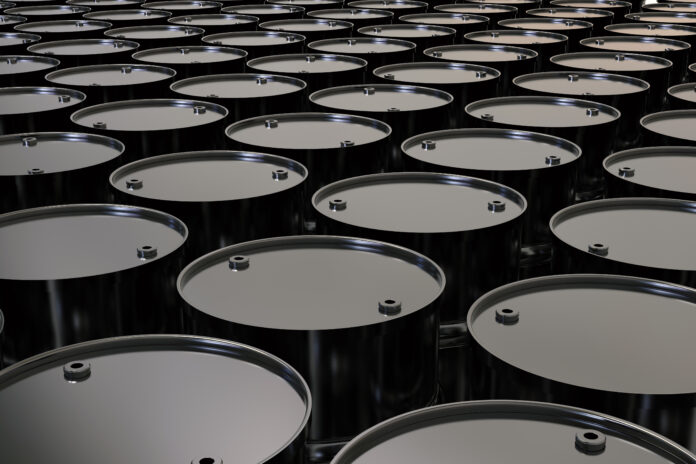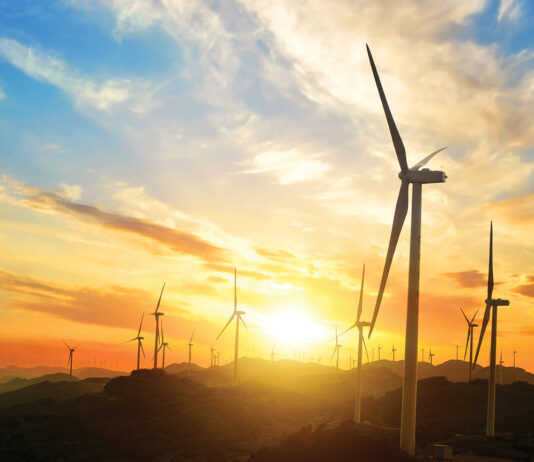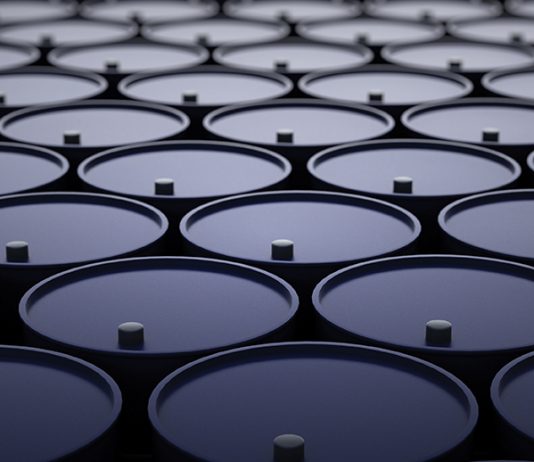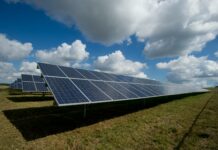
Through a series of reactionary blunders, the current administration has served to drain our country’s strategic petroleum reserve (SPR) to levels not seen since the 1980s. A far cry from energy security amid global conflict, releasing reserves has thus far exceeded domestic refining capacity and therefore necessitated exporting. At the top of the export list is a state-owned Chinese oil company, with whom President Biden’s son, Hunter Biden, has had significant dealings in the past.
We’ll look at the true cost of tapping America’s emergency petroleum reserve, how releasing oil from U.S. reserves affects supply elasticity, and who benefits the most from Biden’s grand maskirovka.
Not What the SPR was Intended For
The Strategic Petroleum Reserve is the world’s largest supply of emergency crude oil. It establishes a means to mitigate supply disruptions in petroleum reserve products. An SPR oil release is only possible by meeting strict conditions as laid out in the Energy Policy and Conservation Act (EPCA).
Only the President can initiate an emergency drawdown, and the conditions are strict. These conditions have only been met three times in the entire history of the SPR. When conditions necessitate an emergency release, statutory mandates require a competitive bidding process. With WTI crude futures skyrocketing from around $60 a barrel in September 2021 to about $120 a barrel in June 2022, the release represents a time when the government could expect a relative premium.
With a President who has repeatedly snubbed oil executives and blamed everyone from oil companies to gas stations for high prices, the timing of the SPR release in a way that benefits the government and not the consumer is indeed a head-scratcher.
Where Excess U.S. Oil is Going
The record-breaking outflow from the SPR has reduced the emergency reserve to its lowest levels since the 1980s. The SPR has a total inventory of just over 726 million barrels. According to the Department of Energy’s (DOE) current inventory, the SPR has just 485 million barrels as of July 8, 2022.
So, where did the SPR oil go? Per a DOE news release, winning bidders of the 30 million barrels from the April SPR auction included many foreign-based companies:
- France: Atlantic Trading and Marketing
- Norway: Equinor
- Netherlands & UK: Shell
- Cyprus: Mercuria
- Saudi Arabia: Motiva
- China: Unipec
The SPR is currently releasing around 1 million barrels daily and expects to maintain that pace through at least October. However, at least 5 million of the 30 million barrels from the emergency drawdown meant to combat high gas prices at home found their way to Europe and Asia. Exporting oil may even lessen the impact of Biden’s gas tax holiday, not that it helped much anyway. You may also recall a recent Biden tweet that went viral when he blamed companies running gas stations for high prices and directed them to slash their costs, drawing widespread criticism.
Beyond not doing much to reduce gas prices for Americans, another issue with exporting oil currently is a strengthening U.S. dollar. The U.S. Dollar and Euro just reached parity, an economic harbinger that hasn’t occurred in more than two decades. With U.S. exports being more expensive to foreign buyers, demand may decline sharply for U.S.-produced goods when buyers can procure those same goods cheaper elsewhere.
U.S. Energy Security is a House of Cards
U.S. energy security is global energy security. In tandem with the SPR, the International Energy Agency (IEA) is the governing body that controls the emergency release of oil stocks. Member countries are called upon to contribute whenever the IEA decides there is a need. In April 2022, the IEA announced the largest ever emergency oil reserve release in IEA history – a staggering 120 million barrels. Of this total, the U.S. is called on to contribute 50% (60 million barrels) from the SPR.
The IEA projects through October 2022 to release around 240 million barrels total to the global market. Having two of the largest emergency oil reserve releases mere months apart was all to “stand in solidarity with Ukraine” and followed the Russian attack on the country. The IEA estimated early in the conflict that as much as 3 million barrels per day of Russian oil output would be shut in—more than 30% of its total. Yet, this figure would turn out to be grossly pessimistic, and four months into the conflict, Russia’s oil and gas production remains relatively consistent. Moreover, the Russian Ruble is at its strongest in almost a decade. Perhaps due in part to Russia’s demand to be paid for oil and gas in their home currency.
Still, the IEA sees the energy crisis as enduring across Europe. Severe shortages, oil and gas rationing, surging inflation, and a near-guarantee of a recession in Europe on a macro scale may be the prognosticators of things to come in America by way of a global economy. As central banks worldwide continue to raise interest rates, debt servicing for strapped economies becomes more burdensome. The result of skyrocketing inflation and reduced growth may create a death spiral reminiscent of the aftermath of the 2008 Great Recession when Italy, Greece, and other struggling nations ushered in Europe’s Sovereign Debt Crisis.
As price is the motivation to use less energy for most consumers, it ultimately is the consumer who bears the brunt of such global economic woes. Despite Biden’s energetic Tweets to the contrary, “companies running gas stations” have little say in the fight to secure the global energy supply.
Did Hunter Biden Benefit from the Strategic Petroleum Reserve Release?
The controversy surrounding China-based Unipec being a winning bidder in the April SPR auction lies in the fact that the company is a direct subsidiary of Chinese state-owned Sinopec. When Hunter Biden was principal of private equity firm Rosemont Seneca Bohai, he invested heavily in BHR Partners, a fund controlled by another state-owned entity, the Bank of China, which held investments in Sinopec. From 2013 to 2016, Hunter held a board seat at BHR and would eventually own a 10% stake in the fund. While the younger Biden has since resigned from the BHR board, there is an active Department of Justice investigation into the questionable business practices surrounding his foreign business deals.
Then Why Are Gas Prices Going Down?
Demand destruction affects all goods, but commodities are especially vulnerable to volatility. China is entering another lockdown period, as yet another COVID wave hits the “zero COVID policy” country. China is the world’s number one oil importer. When the country is locked down, a reduction in global oil demand follows in lockstep.
Global recession fears have also sent commodity fears spiraling downward. At the G7 meeting, Biden and world leaders promised to shore up more production. OPEC, to which Saudi Arabia is one of the most prominent members, has not been delivering the full production levels it forecasted were needed to meet demand, with this trend continuing into 2023 according to their most recent estimates.
Biden heads to the Middle East today to talk about “energy security” among a wide range of other topics. Saudi Arabia has little incentive to produce more oil as they have an oil production alliance with Russia. Saudi Arabia has a total capacity of around 12.5 million barrels of oil per day and current estimates peg a production rate of around 10.5 million barrels per day. That leaves precious little margin for production capacity from the President’s high-vis trip.
In the end, the result may be vague promises with little follow-up from politicians who probably haven’t pumped their gas in decades. Still, watch for Biden to announce in the coming days that falling prices are a direct result of the bold steps taken in the Middle East.
Why Draining the SPR is So Dangerous
Instead of boosting domestic production, a release from the SPR seeks to affect pricing artificially. Market interference is the opposite of laissez-faire economics and leaves our economy even more vulnerable to long-term market corrections. Such unquestionable heavy-handed influence isn’t capitalism; it’s totalitarianism, which throughout history has failed mightily.
Instead, imagine if we used such resources to enhance America’s position as the global leader in oil and natural gas production. The SPR’s sole purpose is to help deal with emergencies in crude oil supply, which, without a physical oil shortage, our current state does not constitute in the least.
About Petroleum Reserve : Stay Informed with Shale
At Shale Magazine, we ask the tough questions and dig through the noise to find the facts that matter to oil and gas stakeholders. Check out our latest issues to keep up with what’s happening in the industry, upcoming events, and insights into the energy evolution moving forward.

Tyler Reed began his career in the world of finance managing a portfolio of municipal bonds at the Bank of New York Mellon. Four years later, he led the Marketing and Business Development team at a high-profile civil engineering firm with a focus on energy development in federal, state, and local pursuits and picked up an Executive MBA from the University of Florida along the way. Following an entrepreneurial spirit, he founded a content writing agency servicing marketing agencies, PR firms, and enterprise accounts on a global scale. A sought-after television personality and featured writer in too many leading publications to list, his penchant for research delivers crisp and intelligent prose his audience continually craves.
If you would like to contact our staff writers, you can reach them at [email protected]
















